- Getting Started
-
by k.mammasis
Nootropics are a category of substances that are believed to enhance cognitive function, such as memory, creativity, focus, and motivation. They are also known as “smart drugs” or cognitive enhancers. While some nootropics have been shown to have positive effects on cognitive function in certain situations, it’s important to note that the effects of these substances are not universal and may vary based on individual factors such as genetics, lifestyle, and underlying health conditions.
Moreover, the long-term safety and effectiveness of many nootropics are not yet fully understood, and some may have potential risks and side effects, particularly when used improperly or in high doses. Some examples of nootropics include:
- High-Phenolic Olive Oil: contains a unique set of bioactive stimulants for the brain.
- Caffeine: A stimulant that can improve alertness and focus.
- L-theanine: An amino acid found in tea that can reduce stress and anxiety while increasing relaxation.
- Pomegranate: A fruit that has been studied for its potential health benefits on cognitive function and mental performance. Pomegranate contains several compounds that may have nootropic properties, including ellagic acid and punicallagins.
- Bacopa Monnieri: An herb that is believed to enhance memory and learning ability.
- Modafinil: A prescription drug that can improve wakefulness and alertness.
- Creatine: A compound found in meat and fish that can improve memory and cognitive performance.
- Omega-3 fatty acids: Essential fatty acids that can improve brain health and cognitive function.

Omega 3 Fatty Acids - The Best of Natural Nootropics
Omega-3 fatty acids, which are found in fatty fish, nuts, and seeds, are often considered to be a type of nootropic due to their potential benefits for brain health. Research suggests that omega-3 fatty acids, particularly the types known as EPA and DHA, may play an important role in brain function, including memory, mood regulation, and cognitive performance. Omega-3 fatty acids are believed to improve brain health by reducing inflammation, supporting the development and maintenance of brain cell membranes, and promoting the growth of new brain cells.
Studies have suggested that omega-3 fatty acid supplementation may be beneficial for people with cognitive impairment, such as those with mild cognitive impairment and early-stage Alzheimer’s disease. Omega-3 supplementation may also help improve mood in people with depression and anxiety. While more research is needed to fully understand the potential benefits of omega-3 fatty acids for brain health, including their effects on healthy individuals, it is generally considered safe to consume omega-3s through functional foods or supplements. It’s important to note that the effectiveness and safety of nootropics can vary, and some may have potential side effects or interact with medications. It’s always best to talk to a healthcare professional before using any nootropic functional foods or supplements.













